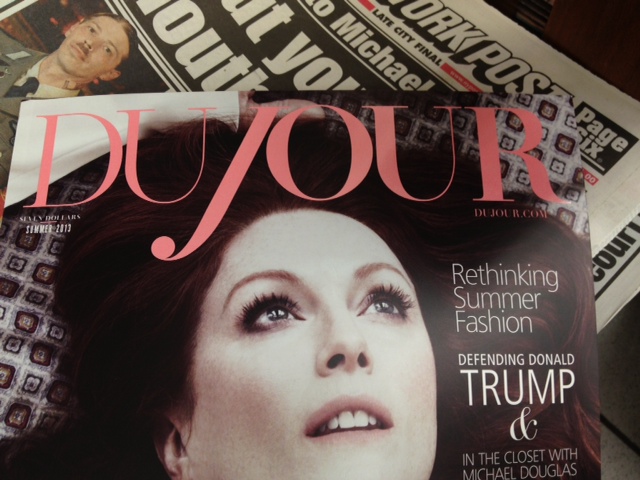I've spent enough time working in "triple bottom line", "mission-driven" environments to know that these days, businesses and organizations are wise to measure success not only by their profits but by how they affect the involved stakeholders and society more broadly. But lately I've been reading more and more from people saying we not only have a new bottom line for business, but we have a new bottom line for ourselves, and our own happiness.
The New York Times recently termed this a Third Metric of Success, the author discussing a new notion of fulfillment in life where being--or hiring--"a go-giver is as desirable as a go-getter". Few things get me down worse than our status quo and default of a stressed, sleep-deprived, burned out life, but t's undeniable that America’s workplace culture is by and large fueled by these things. Call me a Californian but I'm seeing more and more conferences, lectures and books that talk about simplifying life, managing anxiety, and not constantly striving for what's bigger or more lucrative.
Not only is Julianne Moore known for being present in the moment, but I know she's an avid ashtanga yogi because her mat was next to my sister's last month!
Although part of me feels my typical Jewish/Catholic guilt that I even have the luxury to focus on this kind of re-thinking, the other part of me has to believe that if enough people start talking about it, it could spill mainstream and somehow influence the work or personal lives of all engaged people in society.
What's exciting is that pop cultural icons are already being admired for thinking about these things. In the Hudson News at JFK I flipped through a new magazine called Du Jour that interviewed Julianne Moore, a personal fave. I was struck by the way a colleague describes her work: "She believes very much in being present in the moment of performance...but she doesn't carry it with her when she leaves." It goes on to say that "between takes, Moore would swiftly drop character to be a 'comforting colleague' to her young co-star." How refreshing, that the flattery given is not for her around-the-clock work ethic but her ability to be present for herself and others.
Julianne ain't alone--the number one New York Times business bestseller for weeks has been Lean In, written by Facebook's COO Sheryl Sandberg, in which she devotes many pages to re-defining what a successful work-life balance looks like. Clearly, people want to read about this stuff!
***
I'd also argue that having money or material security is not a prerequisite for turning attention towards more elemental notions of happiness (sleeping enough, noticing our breathing throughout the day, feeling satisfaction from giving up our seat on the bus to someone more cumbersome) and benefiting from that.
There are so many FREE ways to put more emphasis on balance in our lives! Leading yourself through a yoga flow in the backyard and realizing that you've taken ahold of the present moment to take some deep breaths would be a good one. Or take my cousin with whom I just travelled to France: I couldn't help my bossy self from encouraging him at several meals to eat slower so he could spend more time savoring the flavors in his meal [he calls himself a foodie but finishes his plate in 3 minutes!].
The author discusses how "we shouldn’t always aim for the extraordinary, but celebrate the ordinary. " How might I do this in the next few days?? I might see myself saying out loud one weekend morning, "I am SO lucky I get to sleep in today!" Or tonight, maybe I'll plan to walk to my work event across town, whiffing the metallic smell of oil oozing forth from the sidewalk after the fresh rain. None of these pleasures cost anything, they just take noticing a simple, sweet moment.
I feel lucky to exist at the same time as this movement to embrace the idea that physical and spiritual wellness are integral to, not separate from, a successful life. If I have my way, within my lifetime someone will be admired much more if they can say "I was able to take time out of my day for a walk, it felt so good and I'm so grateful" than for coming home with a fatty paycheck.
